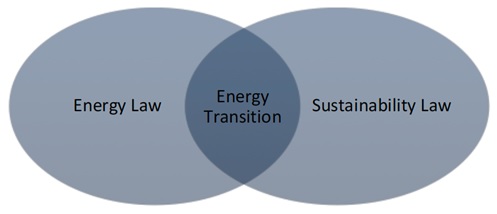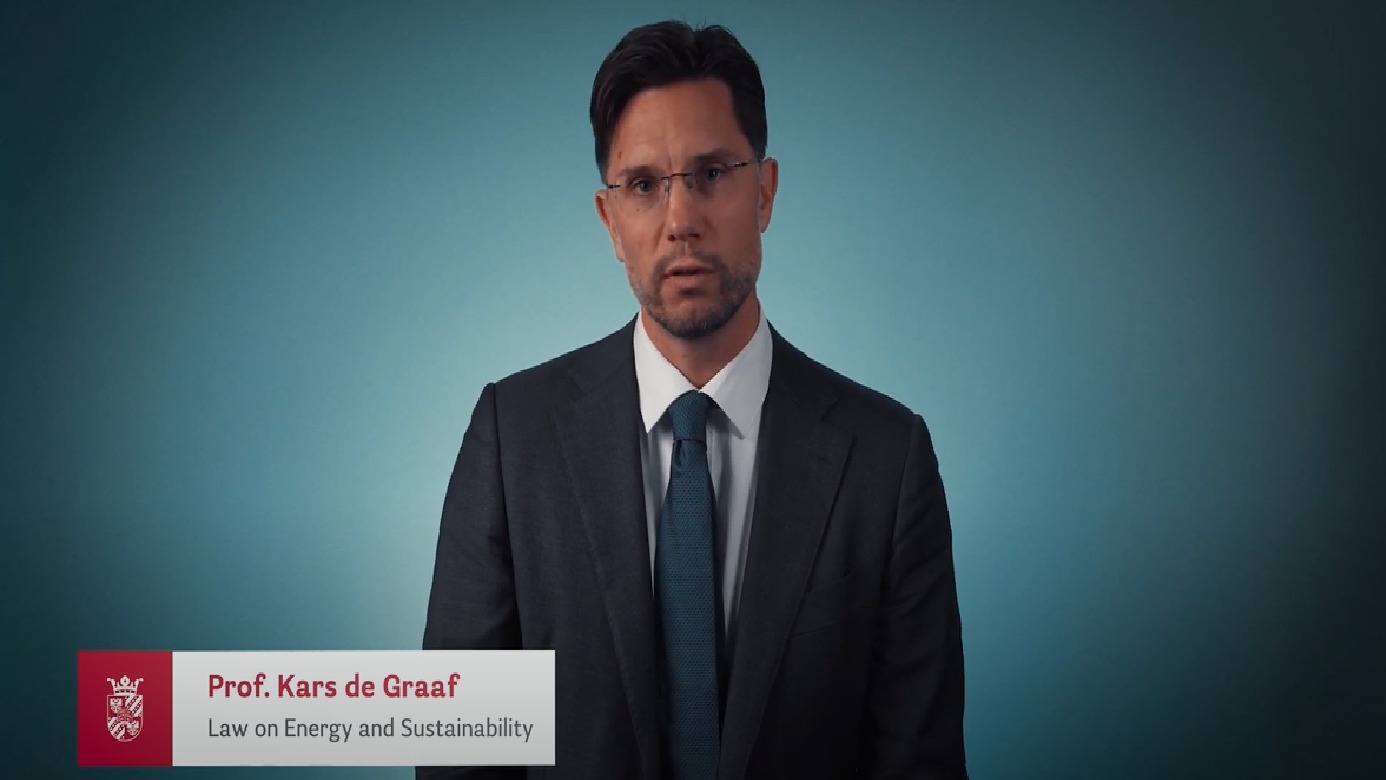Law on Energy and Sustainability
The research programme Law on Energy and Sustainability focuses on energy law and sustainability law as two separate research themes. Those themes also come together to address the legal dimension of the process of energy transition, in which climate considerations play an important role. The programme thus brings together research within the Faculty of Law of two legal disciplines, which jointly are relevant for this important societal challenge.
Research questions
The research programme Law on Energy and Sustainability focuses on three different research questions:
How can law ensure a secure, clean and affordable energy supply, that addresses the societal need to engage in sustainable, fair, low-carbon and competitive energy production, consumption and supply?
How can law foster an equitable and efficient balance between the ‘three Ps’ (people, profit and planet) of the sustainability paradigm, in which burdens are fairly distributed within society and across generations?
How can law facilitate and support the energy transition towards a low carbon economy?

Key areas
This research programme explores the three aforementioned research questions in four key areas:
- Energy law
- Sustainability law
- Energy transition
Energy law
Energy law research involves the entire energy sector. It includes all legislation and regulation applying to the production, transmission and supply of energy. The governance of the energy chain has been subject to important changes over the last decades due to market liberalization and concerns regarding supply security and climate change.
The energy law research thus focuses on three perspectives: an economic perspective, an environmental perspective and a social perspective. The Groningen Centre of Energy Law and Sustainability has an excellent reputation and has played a key role in developing and promoting research in these key elements of energy law.
Sustainability law
Sustainability law has emerged as a key concept through which societal challenges are addressed in policy-making, regulation and governance at the international, European, national and local level. The research programme addresses how law can stimulate and foster an equitable and efficient balance between people, profit and planet, in which burdens are fairly distributed, today as well as tomorrow.
The cross-disciplinary legal research within the programme focuses on the legal instruments and challenges to mitigate and adapt to climate change, to protect the environment against detrimental human activities and to preserve and improve nature and biodiversity. Other goals are to use natural resources sustainably, to strive for a circular economy and to achieve the Sustainable Development Goals (SDG’s) set by the United Nations.
Energy transition
Energy law and sustainability law meet in the process of energy transition, which is the research programme’s focal point and therefore a core theme. Global warming is regarded as one of the most important challenges facing humankind and has led to the recognition that an energy transition is inevitable. Solving this problem requires climate law to incentivize an energy transition away from fossil fuels towards sustainable energy sources.
Sustainable energy production and consumption within the energy sector is of great importance in light of the transition towards a sustainable society. This also indicates that there is an inherent overlap and interaction between energy law and sustainability law.
Ambitions
LES involves researchers from a broad range of legal disciplines and includes both international, European and national levels, as well as the interplay between them. The programme cooperates with non-legal disciplines to address related social, economic and technical aspects of the transition towards a sustainable society.
The ambitions of the programme are threefold:
- To continue and expand the research reputation of the Faculty in the field of both energy law and sustainability law as well as the law governing the energy transition, including climate law
- To attract external funding for innovative research in these fields of law
- To provide the structure and the environment to engage as many researchers as possible in the field of energy law and sustainability law
Research objectives
The primary objective with the LES research programme is to contribute to ongoing societal challenges in investigating both energy law and sustainability law as separate research focus areas, as well as the legal dimension of the energy transition. LES includes all levels of legal analysis: domestic law (both at the local and national level), regional law (primarily EU law) and international law. The programme requires research into different areas of law, such as private law, public law, criminal law and tax law.
The second objective is to engage in interdisciplinary, multidisciplinary and cross-disciplinary projects that are of scientific relevance, have a high societal impact and are commissioned by and/or undertaken in collaboration with societal partners.
As a third objective, the programme aims to strengthen the link between research and academic teaching. Examples are the Master programme ‘Energy and Climate Law’, the ‘Advanced LLM in Energy Law’ offered by the North Sea Energy Law Partnership (a joint degree with the universities of Aberdeen, Copenhagen and Oslo), as well as other Master programmes in the field of public (international) law and European Union law in Groningen.
Relevant links
Contacts
Prof. mr. dr. K. J. (Kars) de Graaf
| Last modified: | 01 July 2024 1.23 p.m. |

